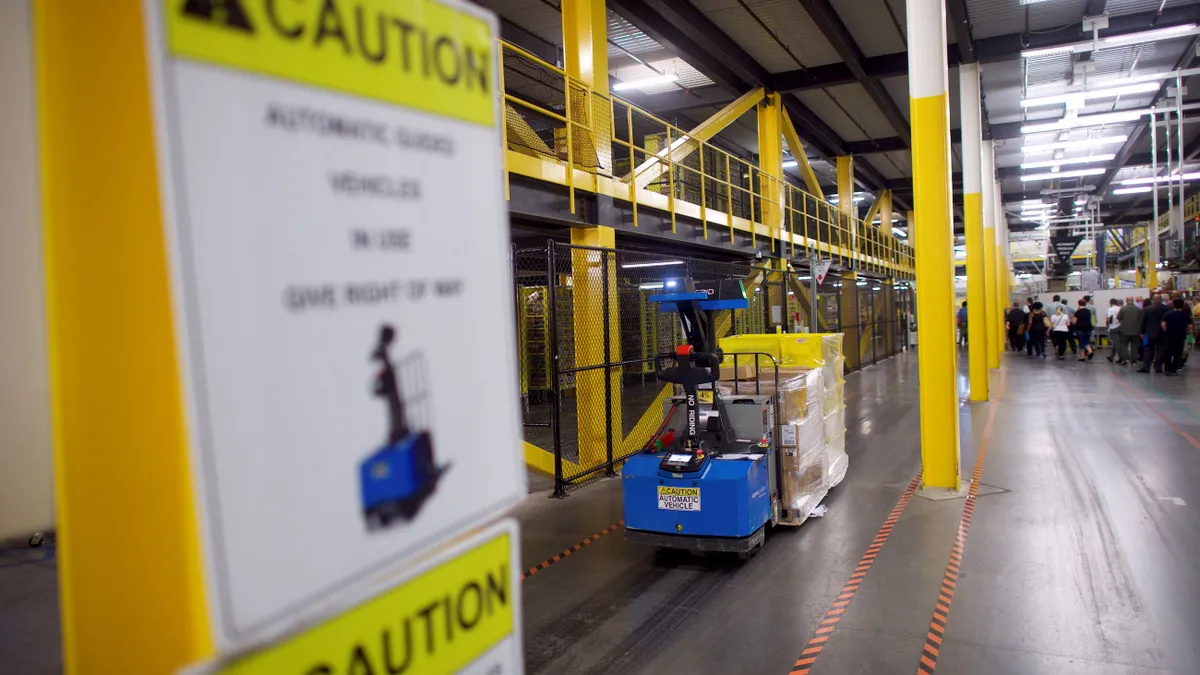Navigating ongoing economic volatility remains top of mind for CFOs and their fellow C-suite leaders — tariffs, changes in the global economy, and how those shifts could affect the business’ day to day are among the biggest concerns cited during conversations with finance chiefs and fellow CEOs, Christina Ross, CEO and founder of FP&A platform Cube Software said.
The need to keep track of new market shifts in real time underscores a fundamental change in how CFOs and the finance function are approaching planning: “The reality is, we're no longer in a world where planning happens once a year,” Ross told CFO Dive in an interview. “It's constant.”
That planning, however, tends to be spread across multiple platforms; finance teams, for example, “no matter how hard we've tried to pull them out of Excel, are still planning in Excel 99% of the time,” she said. Marketers, on the other hand, tend to want to conduct their budgeting and planning in Google Sheets, while CEOs look to platforms such as Slack, Ross said.
On Monday, Cube, a provider of FP&A software, launched an AI suite of apps aiming to meet business teams on the platforms where they already are — connecting across tools and workflows and utilizing natural language to query and to aggregate information, she said.
Excavating the finance ‘pyramid’
The June launch comes after the software provider unveiled a suite of “agentic AI” apps in April for communication in Slack and Microsoft Teams, according to a company announcement. The suite announced Monday includes support for real-time workflows, interactive reporting and the use of natural language, according to the company.
That includes enabling the ability for an FP&A leader, for instance, to build reports in platforms like Excel — still the “lingua franca” of finance, Ross said — and then share them as interactive dashboards with other relevant leaders and teams, such as the CRO, she said.
“That entire workflow would have required one person at the center to manage all these relationships, to manage all the data, to manage all the files, to perform calculations on their own,” Ross said. “This is now all done with a button click at each step.”
Smoothing the planning process across disparate platforms is critical for today’s CFOs, who are increasingly asked to serve as strategic advisors as well as stewards of capital.
The need for swift and easy planning arises from the challenge of effectively using data: in the hierarchy of finance’s imperatives, strategic finance sits at the top, according to Ross, a self-described “serial CFO” turned CEO. Underneath strategic finance is planning, and “before it is reporting, before that is data,” she said.
Consequently, many of the potential ways AI could aid modern finance chiefs are tied to data, especially “the transaction layer, which is typically what happens before that data gets to finance,” Ross said.
“It is a huge need when we think about the world of accounting and the fact there aren't enough accountants in the world anymore, this is where AI can actually help humanity to both fill the gap and also help take sort of the grunt work out of the land of accounting,” she said.
Part of Cube’s newly announced AI suite includes smart forecasting, for example, which “can take everything from historical data to seasonal transactions and actually predict…what you can expect to see, from everything from revenue to expenses,” Ross said.
Making space for AI
Cube is among several companies that have recently launched AI enabled tools aimed at easing pain points within the finance function — businesses such as Salesforce and Microsoft, for example, have debuted “AI agents” that can help finance employees conduct a range of tasks, CFO Dive previously reported.
As the finance function continues to evolve, technologies like artificial intelligence will likely play a key role — in part, the implementation of tools such as automation software has helped to drive the CFOs’ shift to a strategic leader forward.
“For the last decade plus, maybe it's more like 20 years, automation helped to take finance from the back office to the boardroom, so the world of invoices and transactions and accounting got replaced by machines, and then the conversations could be more strategic in nature,” Ross said.
Automation, however, “doesn’t clean messy data” — which is where AI comes into play, she said. The technology enables finance teams to detangle and make sense of the anomalies or ambiguity that remains, she said.
It’s still critical to leave room for experienced finance professionals alongside emerging technologies such as AI inside the finance function, however — Ross, for example, tends to think of Cube’s solutions as akin to having an analyst working alongside a member of the finance team.
“It doesn't replace someone,” Ross said of Cube’s suite of AI apps. “It is that analyst sitting next to you saying, here's what I found. You can now go a layer deeper and try and understand the story behind the story.”
Leaving space for experienced finance leaders is especially key when it comes to ensuring data transparency and accuracy: “I want to say maybe a year to 18 months ago, this was the most common topic that we'd hear from our customers and prospects around their concerns around AI,” Ross said of data transparency. Cube’s “AI analyst” can provide a breakdown of where it’s sourcing its numbers to ensure full transparency around the information, she said.
“I think for the finance suite, I think you will still need an expert in every function, but you will likely need less raw head count,” she said of the future of the finance function. “For example, you will always need someone who understands accounting, because even if your AI is doing most of the accounting at the end of the day, what a controller does is, it’s this person assessing and building controls.”






















